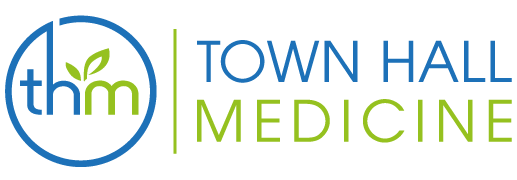THE MICROBIOME SUMMIT : The Paradigm Shift
Microbes II: Multi-System Effects of Inflammation
Dr. Susan Prescott, MD, PhD & Dr. Alan Logan, ND


There is a window of opportunity for establishing a microbiome in early life – and lack of microbial diversity is like the “canary in the coal mine” that can lead to allergies and other health issues down the road. In the second video of three, Dr. Susan Prescott and Dr. Alan Logan discuss how reduced microbial diversity (dysbiosis), intestinal permeability, the immune system, allergies, inflammation and mood are all connected.
- Alan:
- Welcome to the University of Toronto’s Microbiome Summit Series. I’m here with Dr. Susan Prescott; Pediatrician, Immunologist. My name is Alan Logan.
- Alan:
- So, that general rule again external environments typically really healthy if they’re biodiverse. And the same thing seems to be applying to resiliency against many chronic medical conditions. Diversity is protective.
- Susan:
- Absolutely. And again, like, this story begins very early, because it’s the early microbial diversity, which may have long term impact on our health. Through our immune health, but also our metabolic health to influence our risk of chronic diseases. And allergies are one of the best examples of these that we can see.
- Alan:
- What happens so early in life.
- Susan:
- It does.
- Alan:
- So, it’s a great marker.
- Susan:
- It does. And we can see that children who go on to develop allergies say be one year of age already we can see that they have alterations in their stool or fecal sample diversity even in the first weeks of life. So, predating the development of the disease. So, this perhaps suggests there may be of causal relationship now and there are numerous studies that suggests there may be this association between reduced diversity, altered species abundance, and this risk of allergy in that first few years of life. So allergies are a very good marker because they do appear within the first years and even months of life and there has been a dramatic increase in the rate of allergy in a very short period of time.
- Alan:
- You’ve certainly seen that in Australia.
- Susan:
- We do. Certainly in the space of the last 10 years, we have seen a 500% rise in the serious form of food allergy. The anaphylactic form of food allergy. So, this is very significant, and although we’re not here to talk about allergies, specifically today; it is a very clear indicator of the specific vulnerability of our immune system to the much broader impact of the modern environmental changes that we’re experiencing today of which reduced microbial diversity is one of the key factors here. And this has major implications for the many other inflammatory conditions that we may develop across the life course.
- Alan:
- You’ve called it; “A Canary in the Coal Mine” over the years and I think that’s really apt – it’ss a surrogate marker of so many of the other chronic medical conditions and again, we include mental health disorders in that as well. They’re not distinct from the term.
- Susan:
- Yes. And there are a whole range of different conditions that are programmed across the life course that may again, as we’ve said before not appear until later in adulthood. But what happens very early on whether it’s your nutrition, your microbes, the toxins you’re exposed to;
- Alan:
- All of which, interact. Right?
- Susan:
- They all interact.
- Alan:
- Right. So, nutrition meets your microbes directly, but pollution environmental toxins do as well. Right? So, they sort of loop based conversations.
- Susan:
- So, when we look at all the known lifestyle risk factors for these chronic diseases and we know them all, whether it’s physical activity or less time in nature. Stress or smoking pollutants. The fast food. The unhealthy diets that we’re eating. All of those are influencing our microbiome and…
- Alan:
- Even too much light at night.
- Alan:
- Which is influencing circadian rhythms and so forth.
- Susan:
- Yes. So, that has both a metabolic effects and immune effects and this really predisposes us to these chronic diseases across the life course. It also means that we can target these risk factors for multi-system benefits. I think when we think about how important the microbiome is, we need to think about early life once again for how we can optimize it, and what conditions we need to consider in terms of having lasting, healthy microbiome as we age.
- Alan:
- Yes. Exactly. Right. Throughout the life course. And we haven’t even talked about antibiotics, but obviously, that is one that we need a much greater concern about prescription and especially, early in lif and we’re starting to see really good connections. Again, associations; but still they’re getting more robust. The anti-microbial exposures early in life leading to a variety of different medical conditions.
- Susan:
- So, even before we can begin we know that the maternal microbiome in pregnancy it’s probably very important for establishing the microbiome. We know that the fetus is already starting to establish the microbiome and it doesn’t just begin after birth, therefore mom’s diet in pregnancy is important. Her antibiotics status and then breast-feeding after birth. The moment of delivery. All of these things are going to be very important in establishing what happens and how your microbiome is established.
- Alan:
- What about over time too, do you think there’s generational changes as well?
- Susan:
- Well, I guess if we look back since the 1930s, we’ve seen a progressive increase in the use of antibiotics globally so at least three generations now have been exposed to greater amounts of antibiotics and…
- Alan:
- And what about fibre? We don’t take as much fibre as we once did in a diet as well.
- Susan:
- So, we should come back to diet later on in this to discuss that because I think that’s a really important part compounded by the anti-microbials as well as the poor nutritional quality. That has been increasing. So, I think it’s fair to say that with those progressive generational changes, we don’t really know what we’ve lost. Overuse of antibiotics says there’s no doubt that it leads to permanent changes and that some of our beneficial microbes just don’t recover.
- Alan:
- Yeah. That really is alarming and fits back again with what you were describing earlier about the potential extinctions. The fact that they may not recover fully. That should be a red flag.
- Susan:
- Yes. So even though we’re focusing on overgrowth of antibiotic resistance in bacteria, we should be equally worried about the loss of our beneficial microbes. But I don’t want to just slam over prescriptions here for antibiotic consumption. We need to remember that most of the antibiotics on this planet are actually coming from agriculture and that the food contamination. We’re being exposed to antibiotics through other sources. And one thing I find fascinating is that animal models, which have used very low doses of antibiotics similar to what you and I would be exposed to and contaminated foods and I’ve studied the effect of this low-dose exposure in early life and found that it is enough to alter the gut flora. It’s enough to have metabolic effects. It’s not enough to have effects on weight gain which is I guess why they’re used it in agriculture. But this really shows the systemic effects of altering the microbiome and really this use of antibiotics may be implicated in a much wider rise in so many chronic diseases.
- Alan:
- One of the things that upsets me is that, you and I have actually dug out and found not animal, but human research in the 1960s indicating this relationship. Between antimicrobials. So, this isn’t really…
- Susan:
- It’s not new.
- Alan:
- There’s this notion that it was discovered in 2004 or 5. That’s not true. It’s just that it wasn’t followed up on. That’s the thing that it was just brushed away or laughed at as the gut brain connection or the microbe connection would of been. So, I mean hopefully we’ve turned that corner. But we really need to start putting this on the fast track because there’s a lot on the line.
- Susan:
- Absolutely. And I think all and all I think we need to understand that there is actually a window of opportunity in early life that’s very important for establishing the microbiome, then after this closes that there might be lasting implications. So, I think that has lasting implications for metabolism. For immune function. And even cognitive and neural development and that timing is everything. And I guess on the front of the cognitive and that the mental wellness, which you raised, I think it’s been such an important factor in how we are and how we feel. I think it would be wonderful to hear more about how you feel or what you think about in the dysbiosis of chronic inflammation and how that is affecting our mood and our behaviour and the flow on effects of that.
- Alan:
- Well, researchers’ are increasingly looking at intestinal permeability, which also goes under the umbrella term of a term; I don’t particularly like, and that’s “leaky gut” right? Because sometimes people talk about “leaky gut syndrome.” There’s no such thing. It doesn’t exist and there is no syndrome associated with this. Leaky gut, however, or more specifically or intestinal permeability can happen. We know that westernized diets can increase the permeability or essentially what it is creating a more porous barrier. And what really struck me was a landmark study published in the Archives of General Psychiatry in 2001, and I sat up straight in my chair, I said this is a game changer. Because what these researchers showed was the most minuscule amount of endotoxin, which is essentially the coding on many of the microbes that might reside in our gut and they’re constantly being broken down. That minuscule amounts of this injected into the bloodstream caused otherwise healthy adults that didn’t have a care in the world they complained of brain fog or lack of cognitive focus. The attention or anxiety, low-grade depressive symptoms and feeling tired. Now since that 2001 study many other studies have replicated that in humans. They’ve added pain to the mix. And it showed for the first time really what could be the fallout mentally if someone had intestinal permeability. So, there’s a lot of things that cause intestinal permeability. Psychological stress is an example. Excess exercise. So too much exercise can cause intestinal permeability. Excess alcohol. Of course, we have already mentioned a westernized diet. Sleep loss or lack of circadian synchronicity can cause it as well right, which travelling back and forth from the northern to the southern hemispheres. You would know that.
- Susan:
- Yes.
- Alan:
- So, environmental toxins have also been shown to do this. But here’s the most unbelievable thing. You mentioned that the immune system is very active in the brain well, guess what the same environmental factors that cause intestinal permeability also appear to cause a more permeable blood-brain barrier. So that’s where it starts to [11:00]get interesting. So, that was one of the driving forces between looking at this environmental relationship and could you then use beneficial microbes which might heal or at least make the gut membrane more viable. That was the original thinking. There was also research out at that time that showed direct communication between the gut microbes in the brain, but only with pathogenic microbes so harmful. The type of bacteria will cause food poisoning for example. There was also research at that time; when I say at that time we’re talking in the early 2000 showing that probiotic bacteria could influence your systemic, your blood levels of antioxidants and could lower inflammation in the bloodstream. Once that was shown, that was again, all bets are off. There could be a relationship between beneficial microbes and brain health.
- Susan:
- So, there’s lots of different ways that the gut and the brain are connected that we didn’t previously know and microbes are probably a very important part of it.
- Alan:
- They are. And you and I have sort of coined this term, “Encephalo Biotics” right, which is I think a really important distinction. Out there, there is a point out there called, “Psycho Biotics” which, I don’t particularly care for in the general sense. It’s good because it’s tightly defined. It’s a drug. What it is defined as a is “Live Microorganisms,” that could provide benefits those with psychiatric illnesses. So, that’s not a natural health product. That’s not a dietary supplement and I think folks need to understand that. A psychobiotic is actually a drug. Because any agent, any medication that is geared for depression, anxiety or a psychiatric illness is a Schedule A claim, it’s a very serious thing. You have to do multiple clinical trials to prove that this indeed helps depression anxiety or any psychiatric illness. So, psychobiotics are drugs and let there be no mistake about that and they’re also live. You and I in our description of encephalo biotics; we’re talking about anything. It could be microbial parts.
- Susan:
- It doesn’t have to be alive.
- Alan:
- It does not have to be alive. It’s anything that might promote the microbiome in a beneficial way that would confer a benefit to the brain overall. And that could be mental outlook or anything. Because, you know, it upsets me a bit. I see these headlines out there, you, see them too.
- Susan:
- Yes. Forget Prozac.
- Alan:
- Yeah. Forget Prozac.
- Susan:
- Probiotics.
- Alan:
- I I find these messages that are out there, these headlines; we call it “Hyperbole” right? But it’s more than that. I find it actually to be reckless. Because what you’re doing is you’re saying, “Take a probiotic or so called psychbiotic and you don’t have to seek appropriate mental health care.” It’s a dangerous thing. Depression is a potentially deadly illness. It’s life-threatening. So, folks need to get appropriate mental health care, and I really get alarmed when I see those type of headlines out there about those type of things. Again, pyschobiotics are drugs and nothing else.
- Susan:
- So, really I really love the quote that came from one of your papers or our papers recently, and that is; “Are we to imagine a world in which, we line up for costly lead-generated microbial products while the forces are driving dysbiosis remain in place?”, and I think that such an important message. Because if we really want to address the health agenda here we shouldn’t be just addressing dysbiosis with these products. We really should be looking at why there is dysbiosis in the first place.
- Alan:
- I completely agree, and let me also say, that I hope and pray that psychbiotics come to fruition. That a decade from now, we can look back and say yes. These four microorganisms are beneficial for those psychiatric illness. I hope that comes. But in the meantime, to pull the reins back a little bit about that.
- Susan:
- So, I guess when I look forward, and think about what do we do about this? You know, how do we essentially restore the balance? You know; we’re really in a period where we’re really made to think very clearly and carefully about recalibration. Trying to, if we can restore the aspects of lifestyle that were beneficial without losing all the things that we love and also at the same time trying to reduce the detrimental exposures and behaviours. And one of the things that I know that is very close to your heart and you have written books about this. The importance of nature andcertainly, a closer relationship with nature is I think many of us believe one of the best strategies that we can have to include and to improve our microbial biodiversity, but obviously, it’s going to have so many other benefits for our health.
- Alan:
- I mean, you’re right. And that’s the wonderful thing about our conversation here together. Is we focused on early life and there’s no greater time to get young children connected to nature or pregnant moms connected to nature. Being out in nature. You know; if you’re out in nature right and you’re close to trees and the microbes are let’s say 4 to 5 feet away from those leaves. That foliage. Are very distinct from the microbes that exist in an urban environment that’s not too far away. The microbes in a park are very distinct from the microbes in a parking lot. So, you’re contacting diversity. And that’s important thing when it comes to the nature relatedness and how it might affect others you know; health systems through life.
- Susan:
- So, that might explain why being exposed or living in natural environments when you’re pregnant improves that maternal health and a range of different pregnancy outcomes that’s been showing. Hasn’t it?
- Alan:
- Yeah. It’s actually remarkable and I think at last count, you and I had identified 9 or 10 studies, which showed that green space, your residential proximity to green space; green environments was protective against premature birth or supported optimal birth weight.
- Susan:
- And certainly, in my area of allergy, there’s now quite a lot of the evidence shown that microbial exposure in pregnancy is protective. And that’s been seen in human studies when you just looking observational studies, but it’s also been seen experimentally in animal models when you give the pregnant mother’s various different forms of microbial products, and again; it might be live or killed products or probiotics or other non-pathogenic. In other words, harmless bacteria from the environment given to and exposed to the animals actually prevents allergy in the offspring. So, it’s showing us once again that microbial exposure, and it’s particularly exposure to microbes in the natural environment actually is protective for our health. And I guess extending that further is the kind of food we eat because that influences the microbes and there’s also studies showing that by giving a high-fiber diet in pregnancy to animals will actually favourably alter their microbial diversity and prevent allergy in the offspring. So, again, we’re saying there’s link between the exposure to the natural environment. Exposure to healthier foods and protection from allergy, but again, with flow on the facts for other aspects of our health. And we’re in Australia are just starting some clinical trials and looking at the probiotics; the – the food of the bacteria the high fibre diets in pregnancy to see if we can reduce the risk of allergy. I think that’s a really good point to really emphasize just how important the diet is for our microbiome and that our changing dietary depends on the level of fats. The micronutrients, the phytochemicals, all influence the relative abundance of bacteria. Don’t they?
- Alan:
- Yeah. Those phytochemicals are one that don’t get a lot of play. I have mentioned fibre to you earlier. And you know, the risk of extinction of microbes through lack of fibre over generations. But phytochemicals, the pigments within plants. You know, these are chemicals, natural chemicals, that give plants their taste, their colour and their texture. They have a wonderful relationship with the gut microbes. They help promote the growth of beneficial microbes. But on the other hand, the beneficial microbes themselves work on those phytochemicals and make them more bio available for our bloodstream absorption.
- Susan:
- So, I guess we can say, “who is in our gut”? Is very important um but what they’re doing there? In other words, their metabolism and function may matter even more, and I think we’re going to see in the next coming years aren’t we a greater focus on not just the species diversity, but also, the metabolic activity of the gut microbiome. And the diet I think is critically important here has its determining both who is there and what they’re doing? Because it is the substrate for this bacteria.
- Alan:
- No. Its true. Its true.



